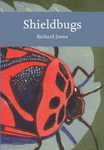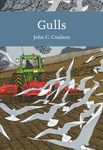By
Leon (NHBS Catalogue Editor)
18 Aug 2021
Written for Paperback

History will forever associate Charles Darwin with the theory of evolution, but the idea was in the air. Had not Darwin published his famous book, someone else would have likely snatched the prize. Husband-and-wife duo John and Mary Gribbin here examine the wider milieu in which Darwin operated and the many thinkers who preceded him. Given their previous collaborations, the first two parts of
On the Origin of Evolution read like a well-oiled machine, but the book falters when they turn their eyes to the legacy of Darwin's ideas.
Aristotle's notion of a great chain of being was readily adopted by Christian thinkers and hamstrung evolutionary thinking for millennia. Still, as the first third of this book shows, some people did ponder both man's place in nature and the relationships between living beings. Liberally quoting from their writings, the authors introduce you to notable characters and their brilliant early flashes of insight. For example, Thomas Aquinas allowed for species development but not formation. Fossils were neither recognized as ancient nor as the remains of extinct creatures. 17th-century British polymath Robert Hooke who may well have been one of the first to recognize them for what they were. His ideas on species formation and extinction seem prescient. In the 1770s, Lord Monboddo already argued that humans descended from apes. And yet, the dots were not connected into a bigger picture.
When the book gets to Darwin, the tempo slows right down and the middle third of the book examines Darwin's life and simultaneous developments around him. The Gribbins sketch how Darwin, ever careful, worked on his ideas for decades. The history of how Alfred Russell Wallace later came to similar conclusions and ran them past Darwin in a letter, and how their findings were presented at a meeting of the Linnean Society, is well-known. What the Gribbins here clarify is that, if it seems strange to us now that Wallace's letter was publicly presented by a third party without his consent, this was normal. Communications of scientific interest were expected to be made public as quickly as possible. Various quotes from Wallace indeed show a man who was very chuffed to have his work mentioned alongside Darwin's.
The Gribbins also pay attention to relevant contemporaries such as Jean-Baptiste de Lamarck and Georges Cuvier. They give Lamarck his due and note the irony of him accepting evolution but denying extinction, and Cuvier denying evolution but accepting extinction. If the two had not ended up bitter enemies they might have put two and two together. Another lesser-known figure who came tantalisingly close, and virtually coined the term natural selection, was arborist Patrick Matthew who buried his thoughts in the appendix to a book on naval timber. Other notable details are a public admission to a change of heart over whether a letter from Darwin to Wallace was intended to warn Wallace off. The Gribbins used to think so, but are now persuaded it was not. They also clarify the oft-repeated factoid of
On the Origin of Species selling out on the day of publication: "this is only true in the sense that all the copies had been bought up by the bookshops, ready to sell on to their customers" (p. 166). These and other details left me with the impression that the authors have been meticulous up to this point.
On the Origin of Evolution competes for your attention with
Darwin's Ghosts, which similarly traced Darwin's intellectual forebears. That book ended with the above-mentioned presentation at the Linnean Society, so the Gribbins have the opportunity to set themselves apart with the last third of their book, which examines the development of Darwin's ideas by later scientists. Although I enjoyed the book up to this point, the last part is where it fell a bit flat for me.
The Gribbins weave their narrative through the work of Gregor Mendel, the discovery of the structure of DNA, and the discovery of how DNA codes for amino acids. It touches on horizontal gene transfer, epigenetics, and polygenic traits. All important topics for sure, but they omit so many others as to make this part of their history rather haphazard.
Two oversights stand out. They discuss how extinction ultimately became accepted but leave out the next chapter: the mass-extinction debates. Similarly, they recognize Wallace as the grandfather of biogeography but leave out how plate tectonics explained palaeobiogeographic patterns. Basically, they completely ignore the rise of palaeobiology. Beyond these, they feature Thomas Hunt Morgan's research on
Drosophila, but not the emergence of evolutionary developmental biology. They profile Barbara McClintock's struggle to get her discovery of mobile genetic elements accepted but not Lynn Margulis's struggle to get endosymbiosis recognized. And although the Sources and Further Reading section lists other major thinkers, there is no discussion of, say, Ernst Mayr and the problem with species definitions, the work of Stephen Jay Gould, or the debate on levels of selection. Sexual selection and phylogenetics are completely absent.
They cram this last part in a mere 70 pages while repeatedly mentioning not being able to go deeper. I am not sure why. At 253 pages of text, the book is not particularly long. Had they spent another 50 or even 100 pages, I feel they could have done it more justice. I will be the first to concur that writing such an overview is challenging. Part of the problem, I think, is that the authors do not have a thorough background in (molecular) biology and reach into unfamiliar territory, as evidenced by some elementary mistakes. On p. 218 they mention DNA contains three purines and one pyrimidine, and correct themselves two sentences later (there are two of each). They mix up the DNA base pairs on p. 226 (CT and AG pairs) but get it right on p. 227. And on p. 244 they mention the human genome consists of 6 billion base pairs which is double the actual number. Anyone who has had to study Alberts's brick will have had these facts drummed into them, but their acknowledgements are silent on whether fellow biologists provided feedback on the manuscript. Now, I do not want to blow a few factual errors out of proportion, but together with the brevity of the material included, and the many other topics not covered, this last part left me less than satisfied.
Overall then, this book is an excellent introduction to the history of evolution before and up to Darwin that retains important detail despite being relatively brief. I was less impressed with the coverage on the developments since Darwin, which would benefit from supplementary reading. I hope a future review of
The Black Box of Biology will fill in some of the blanks regarding molecular biology.






















![Kame no Kōra wa Abarabone: Jintai de Arawasu Ugokumonozukan [Turtle Shells Have Ribs: A Picture Book of Animal Anatomy Represented by the Human Body]](http://mediacdn.nhbs.com/jackets/jackets_resizer_medium/24/249897.jpg?height=150&width=99)











